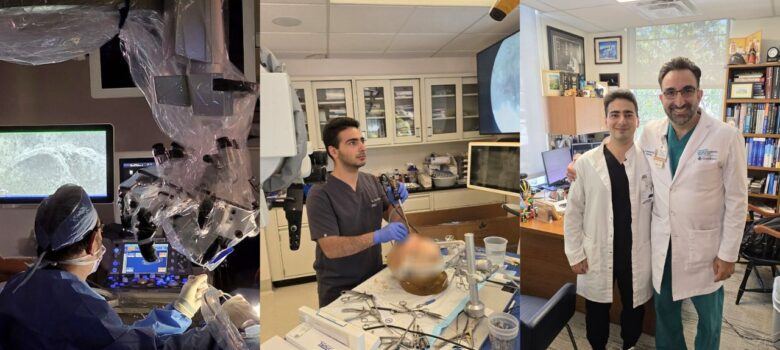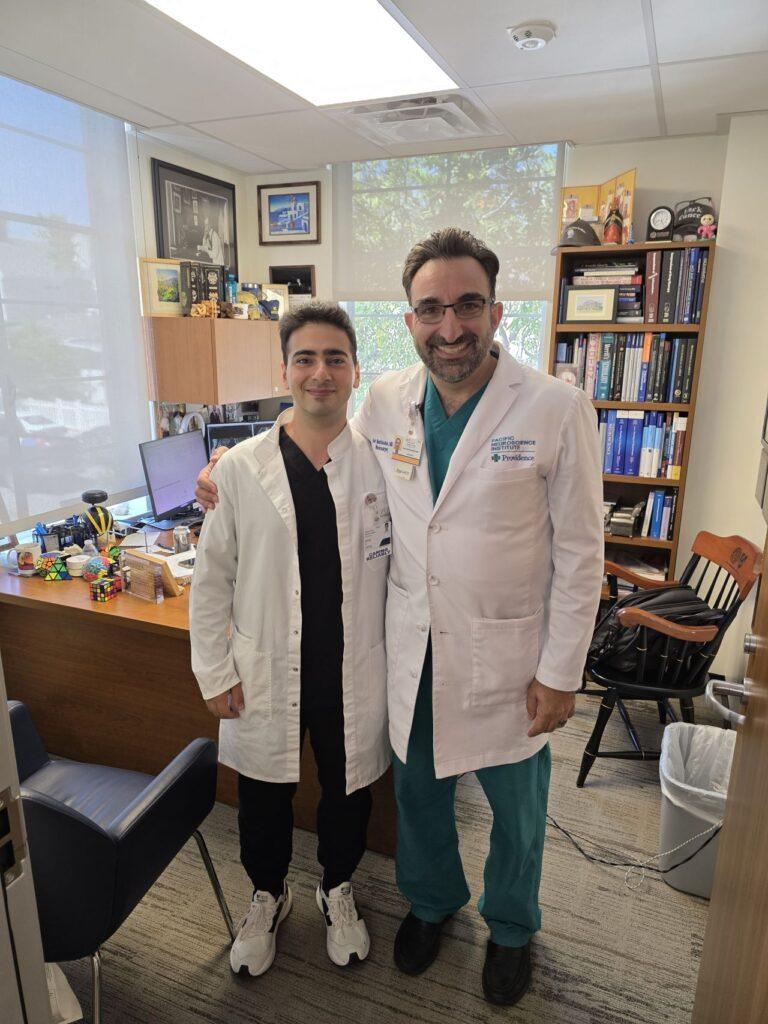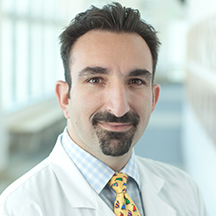

Neurosurgery Observership Experience: Precision & Mentorship at PNI
by Guest Author
What does it feel like to step inside one of the nation’s leading neurosurgical programs and observe the intricate work that takes place every day? For Artur Rizer, the past two months at Pacific Neuroscience Institute (PNI) in Santa Monica offered an experience that went far beyond observation—it was a window into the precision, collaboration, and curiosity that drive modern neurosurgery.
The Neurosurgery Observership Experience: Training for Excellence
The neurosurgery observership at PNI provides participants with direct, in-depth exposure to advanced surgical practices, focusing on minimally invasive techniques and multidisciplinary patient care. This immersive program is designed for individuals committed to the field, offering them an invaluable first-hand perspective on complex cranial and skull base procedures.
Morning in the OR: High-Tech Surgical Precision
The day often began before sunrise. By 7 a.m., the neurosurgery team had already gathered to review imaging and finalize plans for the cases ahead. As an observership participant under the mentorship of Dr. Garni Barkhoudarian, Artur watched as surgeons prepared for complex skull base operations—procedures that demand both focus and finesse.
Witnessing these highly technical procedures up close underscored the vital role of technology in modern neurosurgery:
- Neuro-navigation Screens: These illuminated the operating room, providing real-time, three-dimensional mapping of the patient’s brain and tumor, allowing surgeons to execute plans with sub-millimeter accuracy.
- Intraoperative Neurophysiology: This critical monitoring system observed and reported patient responses in real time during surgery, ensuring the preservation of key neurological function.
Endoscopic and Minimally Invasive Tools: Precise endoscopic tools allowed surgeons to safely reach deep within the brain and skull base through minimally invasive routes, reducing recovery time and risk for the patient.
“Witnessing these techniques up close changed how I think about surgery,” Artur recalls. “Every movement in the OR had intention—every decision, a purpose.”

Beyond the Operating Room: Multidisciplinary Patient Care and Neuroanatomy Lab
A crucial component of the PNI experience is the exposure to the comprehensive, multidisciplinary framework that surrounds surgical intervention. Working sessions offered opportunities to discuss patient cases, practice specialized techniques, and prepare for the next generation of surgery.
Multidisciplinary Conferences: Collaborative Decision-Making
Multidisciplinary conferences, which are fundamental to PNI’s approach to brain tumor care, include neurosurgeons, neurologists, neuro-oncologists, radiologists, and nurse practitioners gathered around a screen to review imaging and decide next steps for individuals facing pituitary, skull base, and brain tumors.
The team-based approach ensures comprehensive treatment planning:
- Full Spectrum Review: Cases are reviewed by specialists across all relevant disciplines.
- Precision Imaging: Advanced imaging (MRI, CT, PET) is analyzed to determine the optimal surgical and non-surgical strategy.
Integrated Care: Decisions integrate research, surgical options, and post-operative compassion to treat the whole person.
Artur credits this collaboration for reshaping how he views patient care. “It wasn’t just about the surgery—it was about treating the whole person,” he says. “I saw how research, imaging, and compassion intersect to form decisions that can change lives.”
Neuroanatomy Lab Training: Mastering Keyhole Techniques
Between meetings, Artur spent hours in PNI’s anatomy lab, practicing approaches on cadaveric specimens under Dr. Barkhoudarian’s guidance. He learned keyhole techniques, studied microsurgical anatomy, and observed how innovation continues to refine established procedures.

He learned specific techniques for:
- Keyhole Techniques: Mastering the skill of operating through a small incision, a core philosophy of minimally invasive neurosurgery.
- Microsurgical Anatomy: Deepening his understanding of the delicate structures deep within the brain and skull base.
- Procedural Innovation: Observing how research and innovation continue to refine established surgical procedures, driving the field forward.
Mentorship and Momentum: The PNI Expert Team
Throughout the observership, Artur was mentored not only by Dr. Barkhoudarian but by a full team of experts: Dr. Daniel Kelly, Dr. Brandon Laing, Josh Emerson, Amy Eisenberg NP, and Natasha Cueto NP. Each contributed a unique perspective—from surgical strategy to patient recovery to compassionate communication.
“The openness of the team made a huge impression on me,” Artur says. “They took time to explain, to answer questions, to model what excellence looks like in every interaction.”
Looking Ahead: A Lasting Mark on a Neurosurgical Career
Two months may seem short, but the experience left a lasting mark. Artur came away with sharpened technical understanding, deeper appreciation for teamwork, and renewed commitment to pursuing neurosurgery as a career dedicated to precision and humanity.
“This observership reaffirmed why I chose this path,” he says. “It inspired me to keep pushing forward—in the lab, in research, and in every opportunity to learn.”
Gratitude
Artur extends heartfelt thanks to everyone at Pacific Neuroscience Institute who made his observership extraordinary. “From the first day, I was welcomed into a community that lives and breathes innovation and compassion,” he reflects. “I hope to carry those values into every step of my training.”

Interested in Neurosurgery Training at PNI?
Pacific Neuroscience Institute offers leading-edge training programs focused on specialized neurosurgery, including fellowships and observerships, grounded in the values of research, collaboration, and minimally invasive techniques.
Learn more about the institute’s fellowship and observership programs at PacificNeuroscienceInstitute.org.
About Dr. Barkhoudarian

Garni Barkhoudarian, MD, FAANS, is a board-certified, fellowship-trained neurosurgeon with a focus on skull base and minimally invasive endoscopic surgery. Dr. Barkhoudarian has particular interest and expertise in pituitary and parasellar tumors, brain tumors, skull-base tumors (including meningiomas, craniopharyngiomas, chordomas and schwannomas), intra-ventricular brain tumors, colloid cysts, trigeminal neuralgia, hemifacial spasm and other vascular compression syndromes.
Last updated: November 20th, 2025